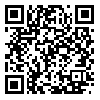BibTeX | RIS | EndNote | Medlars | ProCite | Reference Manager | RefWorks
Send citation to:
URL: http://jhygiene.muq.ac.ir/article-1-216-en.html
2- Birjand university of medcal sciences
3- Medical Toxiclolgy and Drug abuse Research Center (MTDRC), Birjand University of Medical Science, Birjand, Iran
|
Background & Aims of the Study: Malaria is an infectious disease by fever, chills and anemia; and splenomegaly genus Plasmodium parasite is the agent of it. One of the easiest and least expensive methods for preventionof this disease is removing the vector that usually has been done by insecticides and chemical pesticides, but now days due to the harmful effects of toxic chemicals, it is currently trying to use organic toxic and plant compounds in order to combat the pests. So, in this study Hyoscyamus niger was used in order to destroy the larvae of this insect and positive results were compared these plants together. Materials and Methods: Hyoscyamus niger was collected and dried to extract by methanol in a rotary evaporator. Mosquito larvae were collected from stagnant water pits and ponds around the Birjand city, South Khorasan of Iran in order to apply the relevant tests identity and isolated Anopheles spp mosquito larvae. Results: Hyoscyamus niger positive effect was destroying on the Anopheles spp larvae and between obtained results, the most powerful extract for destroying the mosquitoes Anopheles spp larvae was the flower extract of henbane (LC50=0.07) and the weakest extract was the extract of the root of henbane (LC50=0.78). |
Conclusion: According to the results it is recommended the flower extract of henbane as a toxic, organic and natural compound to fight the larvae of Anopheles spp mosquito larvae which used in the other parts of these plants more stronger and more effective.
Received: 2017/01/2 | Accepted: 2017/06/21 | Published: 2017/06/28
| Rights and permissions | |
 |
This work is licensed under a Creative Commons Attribution-NonCommercial 4.0 International License. |








